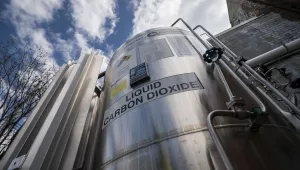Abstract
There is a growing interest in carbon capture and storage (CCS) as a technology to reduce carbon dioxide (CO2) emissions. The substantial additional costs and complexity of CCS facilities over and above conventional use of fossil fuels mean that government subsidies are required to assist the demonstration and deployment of the technology. CCS is not unique in this respect - other forms of low carbon power generation also require policy support. However, unlike other technologies policy for CCS deployment is much less well-developed.
This paper examines the range of policy options available to assist deployment of CCS, with particular reference to its deployment in the United States. It draws on analysis of project economics and an emerging set of policy experiences with CCS internationally.
The different types of financial support already in place are reviewed. Various forms of this support are then modeled for a hypothetical coal-fired power plant with CCS to quantify their implications for project developers and governments. Different types of support are found to reduce the incremental cost of CCS in markedly different magnitudes; cost reduction estimates range from 2% up to 80%.
The goal of maximizing the discounted cash flow of the project favors policies that reduce capital or financing costs in the early years. Support during operation, which may be favored by governments to encourage output, such as the allocation of emissions allowances is also valuable to project developers provided that it is certain. However support during operation needs to be greater than support for capital cost reductions in order to offset the effects of discounting later cashflows.
No single mechanism on its own appears to be sufficient to bridge the current cost gap between CCS and conventional fossil fuel generation. In practice, a bundle of several types of support mechanisms, both at federal and state levels, are likely to be needed to meet the different barriers facing deployment and commercialization of CCS technology. Such a bundle could include carbon pricing, operating cost support through the allocation of free emissions allowances, loan guarantees, capital grants, and investment tax credits.
Al-Juaied, Mohammed A., "Analysis of Financial Incentives for Early CCS Deployment.” Discussion Paper 2010-14, Cambridge, MA: Belfer Center for Science and International Affairs, October 2010.




